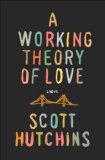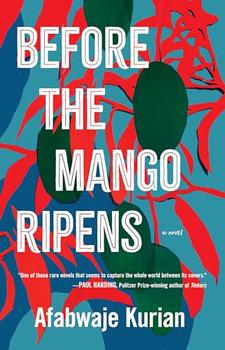
by Scott Hutchins
Settled back into the San Francisco singles scene following the implosion of his young marriage just months after the honeymoon, Neill Bassett is going through the motions. His carefully modulated routine, however, is soon disrupted in ways he can't dismiss with his usual nonchalance.
When Neill's father committed suicide ten years ago, he left behind thousands of pages of secret journals, journals that are stunning in their detail and, it must be said, their complete banality. But their spectacularly quotidian details, were exactly what artificial intelligence company Amiante Systems was looking for, and Neill was able to parlay them into a job, despite a useless degree in business marketing and absolutely no experience in computer science. He has spent the last two years inputting the diaries into what everyone hopes will become the world's first sentient computer. Essentially, he has been giving it language - using his father's words. Alarming to Neill - if not to the other employees of Amiante - the experiment seems to be working. The computer actually appears to be gaining awareness and, most disconcerting of all, has started asking questions about Neill's childhood.
Amid this psychological turmoil, Neill meets Rachel. She was meant to be a one-night stand, but Neill is unexpectedly taken with her and the possibilities she holds. At the same time, he remains preoccupied by unresolved feelings for his ex-wife, who has a talent for appearing at the most unlikely and unfortunate times. When Neill discovers a missing year in the diaries - a year that must hold some secret to his parents' marriage and perhaps even his father's suicide - everything Neill thought he knew about his past comes into question, and every move forward feels impossible to make.
With a lightness of touch that belies pitch-perfect emotional control, Scott Hutchins takes us on an odyssey of love, grief, and reconciliation that shows us how, once we let go of the idea that we're trapped by our own sad histories - our childhoods, our bad decisions, our miscommunications with those we love - we have the chance to truly be free. A Working Theory of Love marks the electrifying debut of a prodigious new talent.
"[I]ntriguing ethical dilemmas ...revelatory and exciting." - Publishers Weekly
"Clever and extensive navel-gazing is modulated by tenderness, humor and charm. A writer to watch." - Kirkus
"Neill Bassett Jr. attempts to parse relationships, family ties, and his own legacy, or lack thereof, in this first novel, a deadpan serious look at the life of one modern worker searching for meaning in an increasingly banal world." - Booklist
"A brainy, bright, laughter-through-tears, can't-stop-reading-until-it's-over kind of novel. Fatherless daughters, mother-smothered sons, appealing ex-wives, mouthy high school drop-outs—damn, this book's got something for everyone!" - Gary Shteyngart, author of Super Sad True Love Story and Absurdistan
"Scott Hutchins's wonderful new novel is right on the border of what is possible: a computer is programmed to be the reincarnation of the narrator's dead father, and the narrator, a charming thirty-something American, learns what it is to be human and to love. The book is brilliantly observant about the way we live now, and its comic and haunting story will stay lodged in the reader's memory." - Charles Baxter, author of The Feast of Love
This information about A Working Theory of Love was first featured
in "The BookBrowse Review" - BookBrowse's membership magazine, and in our weekly "Publishing This Week" newsletter. Publication information is for the USA, and (unless stated otherwise) represents the first print edition. The reviews are necessarily limited to those that were available to us ahead of publication. If you are the publisher or author and feel that they do not properly reflect the range of media opinion now available, send us a message with the mainstream reviews that you would like to see added.
Any "Author Information" displayed below reflects the author's biography at the time this particular book was published.
Scott Hutchins, a Truman Capote Fellow in the Wallace Stegner Program at Stanford University, received his MFA from the University of Michigan. His work has appeared in StoryQuarterly, The Rumpus, The New York Times, and Esquire. He currently teaches at Stanford.




In youth we run into difficulties. In old age difficulties run into us
Click Here to find out who said this, as well as discovering other famous literary quotes!
Your guide toexceptional books
BookBrowse seeks out and recommends the best in contemporary fiction and nonfiction—books that not only engage and entertain but also deepen our understanding of ourselves and the world around us.